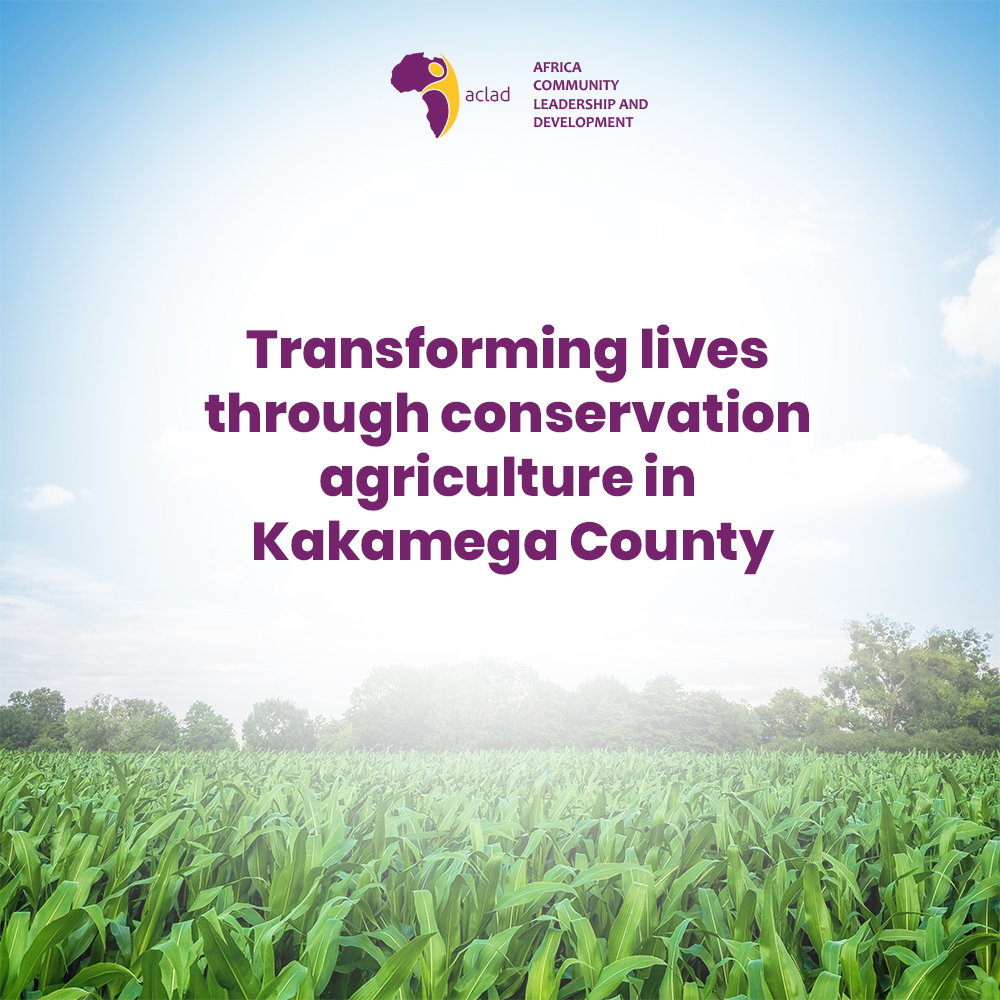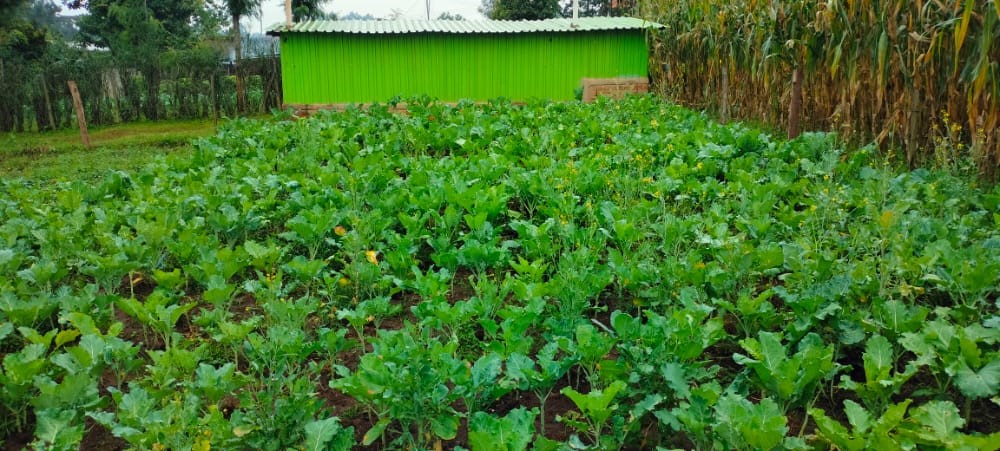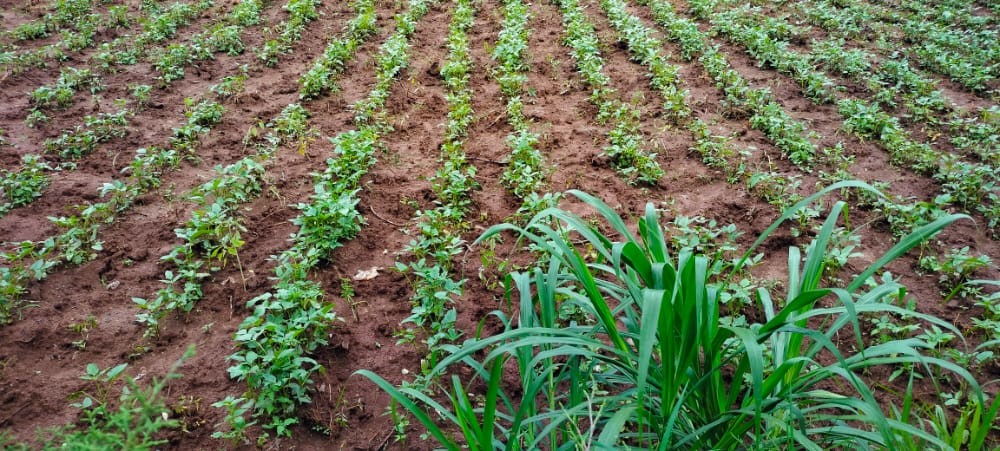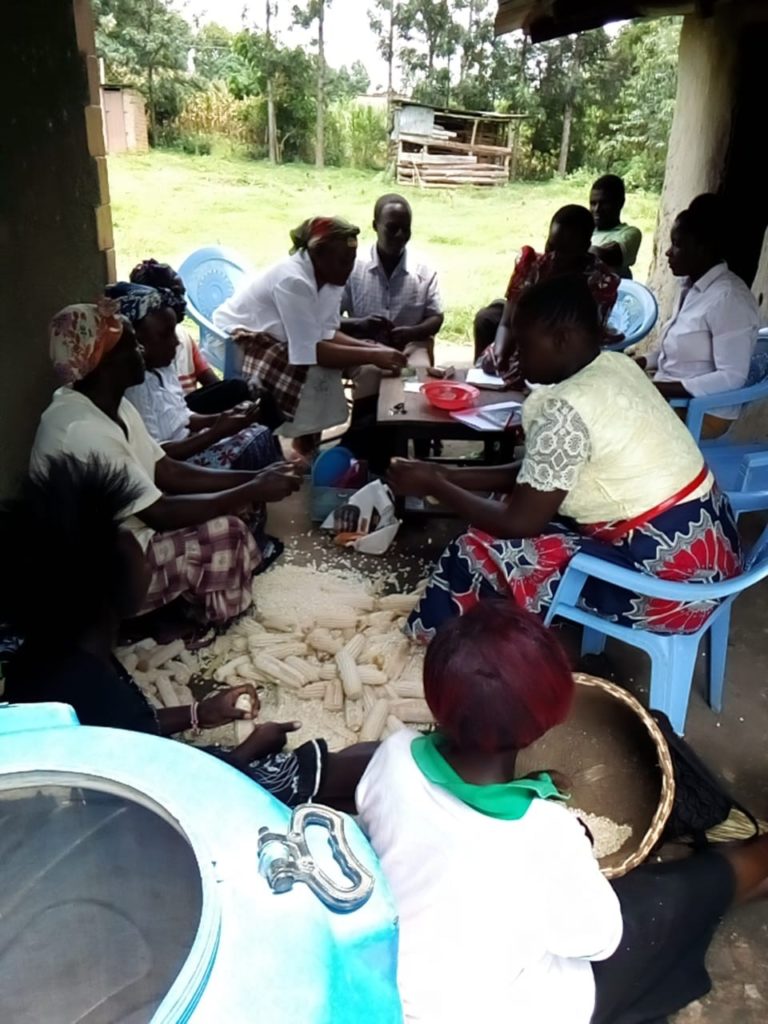Transforming lives through conservation agriculture in Kakamega County

Since January 2020, ACLAD has been enhancing sustainable conservation agriculture skills among communities in Western Kenya by providing insight training and practical conservation agriculture practices like minimal tillage, use of compost manure and fertilizers, cover crops and appropriate user-friendly technology. In addition, the use of technologies like the jab planters encourage communities to set up conservation agriculture demonstration gardens where they collectively put theory into practice. This has resulted in better agronomy practices and subsequent increase in yield and uptake of conservation agriculture practices, which has led to some degree of food security. When individuals are properly nourished, children are able to learn and concentrate on their studies, adults can lead healthy and productive lives and then families and whole societies can prosper.
In February 2020, members of the Majaliwa Savings and Internal Lending Communities in Makuche, Kakamega County received their initial training on conservation agriculture (CA) methods. During the long rains season, they established one demonstration farm of a quarter acre in one of their members’ households. The land was divided into two equal sizes where by one portion was for CA and the other one was for conventional method. They planted the maize as the main crop using jab planters and different types of beans and groundnuts as cover crops. Due to impressive harvest from the CA demo plot of three sacks and six tins which surpassed that of conventional method demo plot of two sacks and four tins, 58 members (5M, 53F) of the group decided to scale up the CA methodology into their individual farms at household level.
In March 2021, ACLAD distributed indigenous vegetable seed varieties -Spider Plant (Saga), Black Nightshade (Managu), Cowpeas (Kunde), Jew’s mallow (Murere), Crotalaria (Miroo) and Spinach and Sukuma Wiki as well as maize- to Majaliwa SILC group, now divided into three groups -Majaliwa, Imani and Mufutu SILC for ease of management. We are happy to report that the Kakamega group members planted the distributed certified seeds, started harvesting and selling the vegetables and have kept books for sales record keeping. For these aforementioned groups who have become small scale producer groups for instance, working together and marketing their produce as a group enables them to buy better quality inputs such as seeds and seedlings, fertilizers and insecticides in large quantities at lower prices. They are also able to avoid the middleman and get better prices for their produce. We are glad to be part of the process of ensuring that the households have sufficient nutritious food both for consumption and sustained livelihood enhancement.

Figure 1: Uwazi women group Sukuma wiki farms

Figure 2: Cowpeas (kunde) farm

Figure 3: Group members in Makuche area who adopted the CA farming method shelling their harvested maize in late September 2021.
Catherine Muteithia
ACLAD Research and Communications Assistant
